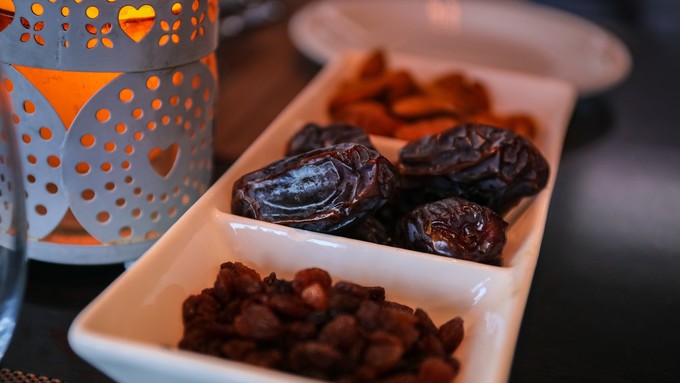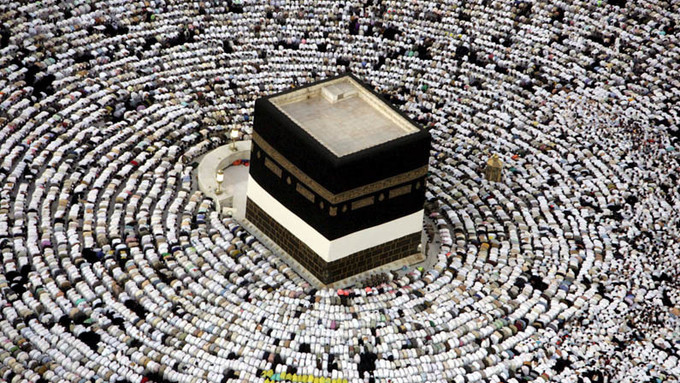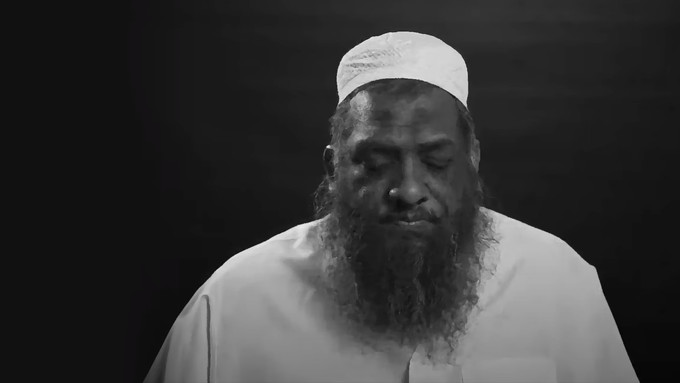A Year Without a Smartphone
By Maryam Miller
It all began with an intention for more focus; being enrolled at a suburban seminary I was already in a semi-Utopia. While living in between the mosque and something like a Muslimah sorority house, our idea of fun was group dhikr (remembrance of God) and occasional Netflix. I hadn’t had phone service since November 2015, yet with the magic of Wi-Fi, between the seminary WhatsApp group, Facebook and iMessage I was a far cry from being smart-phoneless.
Thanks to globalization, in the West particularly, we’re witnessing a race to the bottom and media is no exception. With the good comes bland, an absentminded addiction to the latest updates, hijabi emojis and a general attachment to social networks with a detachment to more inner connections and real-life struggles and success beyond materialistic trends. As Khurram J Murrad, in his foreword to The Duties of Brotherhood, says:
“You live in a crowded world; you are tied into an intricate network of social links and bonds; like a tiny atom, you are whirling around in the company of a multitude of others like you, acting and interacting with each other; yet, you are ‘lonely’…it is a blessing of love and brotherhood which is one of the greatest sources of sustenance and nourishment for man —spiritually, morally, intellectually, socially and even physically. The ‘lonely’ man — a product of our age —is wandering in search of bonds which will not snap like dry twigs and leave him in the lurch.”
I tried it all.
Deactivating Facebook (a joke, being that we can just log right back in).
Making my online status invisible to deter infinite conversations…
Hitting “forgot password” on Facebook until I had to wait a few days for the code to reset.
Hiding my phone at home.
Locking myself out of Facebook with the deactivated number for weeks and sending in ID for Facebook to re-identify me.
Going into several day retreats at home and eventually with buddies.
Some say there are moderators and abstainers. One post, call or text with “off” energy, unfortunately, would get me down for days, sometimes more, so for the time being, I abstained. Moderation requires more discipline. I hoped detaching from tech would help me build up to moderation.
I was also on my second phone provider and almost $1,000 overdue. It was after chipping my tooth in anger after one toxic conversation it happened:
Here, a tracfone said God.
OK, so God didn’t literally speak to me so much as through the cousin I stayed with at the time. Mary handed me a tracfone knowing I was depending on Wi-Fi to connect with folks at the time. It was a loud whisper from The Divine in the subtle reminder that “God works in mysterious ways,” as Allah seemed to be saying:
Tired of social addictions?
Craving more presence in the moment?
Need basic wireless service without added collections bills?
Want more autonomy over your energy and where its attention flows?
Needing a break from the world in general…a year of hermitude perhaps?
While you’re at it go to graduate school land, where you’ll be a legitimate recluse.
My cousin’s gesture was a rude awakening into how unstable I was, not so much financially but on a soul-level. Being a celibate hermit will teach you a lot of things about yourself. Going without a smartphone only adds to that soul-level knowledge.
Tears just below the surface welled after a final call that left me feeling forgotten by a beloved. I struggled to remember my purpose. The suicide hotline reminded me: everything seems better with sleep. I’d been rudely awakened.
More than simply “cutting off”, I began to replace. There was still the regular use of a laptop, the point is that my default state shifted inward to a source beyond me. Qur’an, dhikr, reading, writing, therapy, art, sister circles, Tai Chi, Chai Tea and sister circles summed up the fall semester following seminary. Botanical gardens, books, fikr (reflection) corners, incense, affirmation mirrors, farmer’s markets, early mornings, podcasts, and biking by with new friends met in unlikely places all happened while smart-phoneless.
Being without a smartphone was about so much more than detaching from the nafsee-self — it was a call for reattaching to the heart.
Here are some of the gems gleaned from the experience:
- Distinguish between what’s lasting and real and what’s false — and appreciate both. Most of the drama, joy and “news” is fading. What I missed and didn’t miss in those moments taught me a lot about the state of my heart. Sometimes it’s not an expensive world travel or a new partner we need so much as a little distance to have a deeper sense of appreciation.
- Embrace the majesty, mystery, and spark in each moment. The longer I went with the bare minimum, the more of a patient contentment with myself in the present emerged. There was less need for a schedule, time was freed up and the to-dos flowed more.
- Feeling lonely at times is a part of the human experience. 27 (Wrong) Reasons You’re Single teaches that loneliness is a part of being human and that it’s when we tack on judgement, shame etc. that it compounds and cements. As Khurram J. Murrad again states in a Foreword to Imam al Ghazzali’s Duties of Brotherhood,
“Loneliness is one of those ‘gifts’ which modern secularist and technological civilization has bestowed on you. For your bonds, however numerous, have been drained of warmth; your links, however sophisticated, have been turned mechanical; the entire network of your social networks has become an abstract mosaic, devoid of life and intensity. And with what consequences — alienation, personality disturbance, emotional distress, a high crime rate and empty lives. Unless human bonds are again infused with affection and warmth of brotherhood, man with never be able to taste the rich joys and pleasures of living together.”
I continue to learn and relearn how to be there for the people here for me. Those who have been sent as a test force us to embrace the fact that being alone is sometimes healthy.
- My energy is precious. To the courageous ones. The wise ones that wax and wane through the pain to the content place. To the ones who are clear and direct, and are doing what it takes, saving time, money, energy for the betterment of the beloved community. We’ll understand the feeling of being an open puzzle piece in Trump America soon
- There’s a fine line between loyalty and attachment. Social media seems to exaggerate relationships with this all or nothingness when we can still be cool and not be “friends,” or be “friends” and not talk a long time but pick up right where we left off. I’m not for everyone. Being without a smartphone awhile helped to define and affirm the line between co-dependent and being dependable.
- Self- validation, liking what I do and how I do it. Moments writing in solace to Sami Yusuf, publishing my first work, then moving onto the next all lay just past the temptation to reactivate phone service. It paid to stick with it: what might have become social media rants and heart agitations turned into exploring the thoughts behind emotions through freewriting and healthier outlets.
- Detachment from being understood by other than Allah. Everything is right when I embrace my eccentric self. No one can be me like me, alhamdullillah all praise and thanks to Allah.
- No one can be more creative than The Creator. As creative as we may be, eventually, our means are eventually exhausted. Allah easily shows us new methods that put what we think we know to awed silence.
- No matter what others say, we always have a choice, and it’s freeing. Besides just the choice in what we respond to, we can also choose who we maintain a connection to through creative means beyond the convenience of high technology. Or we can simply replace what may become a deadweight to our spiritual development to what uplifts us and those around us.
Fast-forward a year later, and I’m that much more grateful for the convenience smartphones and social networks and therefore I am much more intentional with how and when I use them. As an old friend Khadijah shared, she’s met the most important people in her life on there, including her husband. The work is not to cut off techie distractions so much as replace them with a focus on The Creator and aligning with the community that shares the intention, on and offline.
Maryam Miller (@soulmatesis) is author of Loveletters, now live on Amazon for pre-order. Paperback and eBooks available with all distributors October 10th.
Faith & Spirituality Related Articles

5 Practical Steps To Get You Ready for Ramadan
As Ramadan is less than a month away, we might feel we often haven't done enough to prepare for it. Here are 5 things we can do right now during Shaban to make sure that we get the most out of Ramadan. The Prophet (Peace & Blessings upon Him & His Family) supplicated,” O Allah give us the blessings of Shaban and give us the treasure of Ramadan.”

Hajj at Home: Kindling the Spirit of Arafah
Even if we are not on Hajj this year, our situation is no different. We navigate through the complexities of our daily life, immersed in the never-ending responsibilities of work and family, inundated with the intrusions of technology and social media into every minute of our lives, moving from place to place and idea to idea.
